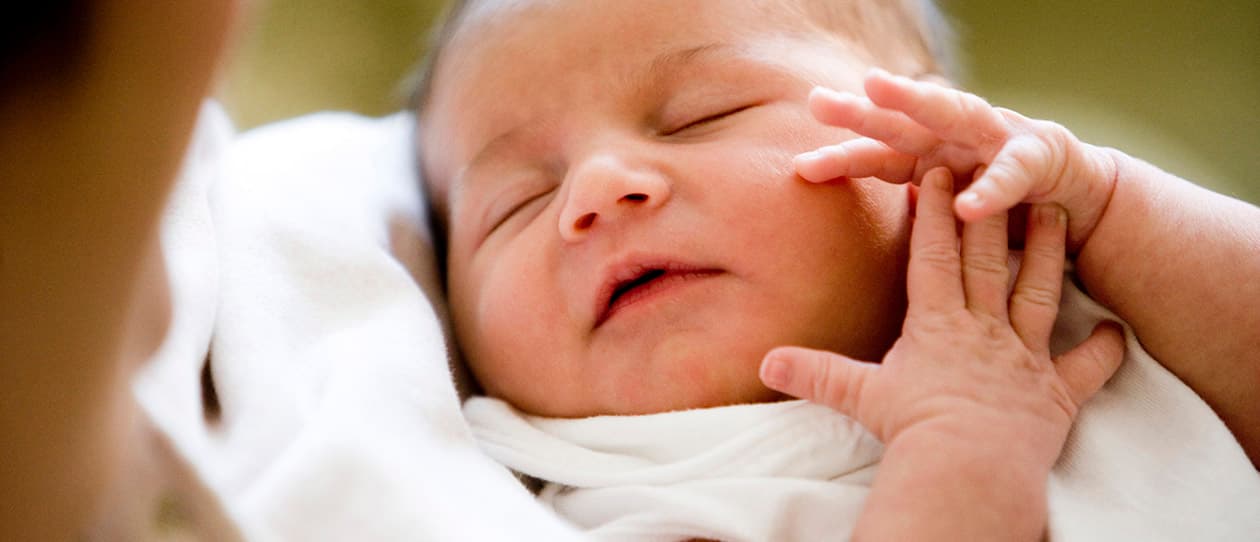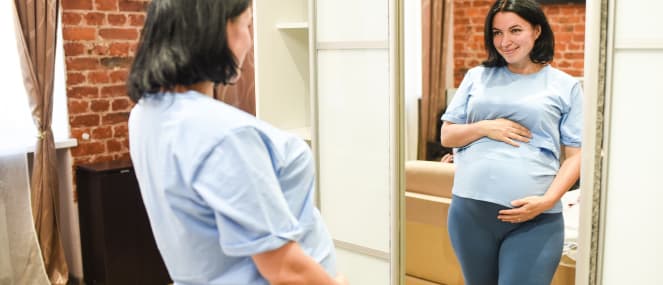
- Health hub/
- Resources for Pregnancy and Preconception/
- Guide for new mums


When you bring your precious newborn home, you soon discover that exhaustion, emotional overload and no time for yourself make having a shower an almost impossible feat – let alone exercising and cooking healthy meals.
The key factor, however, towards taking that daunting first step towards getting your body back is to remember that taking care of a baby is even harder when you’re stressed, in poor shape and feeling down about yourself.
You’d do anything for your child, and giving them a fit, happy mum is the greatest gift of all. Healthy mums raise healthy children, who grow into healthy adults!
Getting started
Fit Mums ‘n’ Bubs’ founder, Jo Sweeney, says the road to fitness starts, appropriately enough, with baby steps. “As soon as you have the medical all-clear, listen to your body and take things gently,” she advises. “Don’t have unrealistic expectations and, above all, don’t embark on a crash diet.”
Jo’s tips for success
- Eat a nutritious breakfast, lunch and dinner, with one or two snacks in between
- Choose healthy, low GI carbohydrates, lean proteins and monounsaturated fats (avocados, nuts, fish and olive oil
- Aim for fresh produce and plenty of vibrant, colourful vegies for fibre and valuable micronutrients
- Check labels for energy density, fats and sugar content
The first 2 months
In the sleep-deprived early days, Jo tells new mothers to get used to being a mum and just enjoy their time with their tiny baby. Then it’s time for you to:
- Find some comfortable workout clothes, good shoes and a supportive bra. Go for a walk in the fresh air with your bub either after breakfast or before a bath in the afternoon. It clears your head of whatever has happened – or hasn’t happened.
- Don’t go more than 3 hours without eating, and make sure you are well hydrated
- Rest whenever you can
- Do your pelvic floor exercises several times a day such as when cleaning your teeth, before you get up, in shopping queues or at traffic lights.
2 to 4 months
According to Jo, losing up to 500g per week is a healthy goal and will not affect your milk production.
- Increase your cardio and strength training – slowly
- Start yoga and Pilates, which are great for core stability, flexibility and stress relief
- Consider joining a fitness group for mums for extra support and motivation
4 to 6 months
By this stage it’s safe to step it up a little and to set some health and fitness goals. Continue aiming to lose a sustainable 500g per week on average.
- Incorporate core moves with strength training. This uses more muscles and requires dynamic stabilisation, which is fantastic for rebuilding your abs and pelvic floor
- Set realistic, simple goals such as fitting into a pair of jeans
- Increase your cardio. Group fitness classes (indoor or outdoor) are a great way to do this, and also get you out of the house for a while. Many gyms provide childcare facilities
- Keep up your Pilates and yoga for core strength and mental focus
- Consider using a personal trainer either 1-on-1, or in groups – sharing the cost is often more affordable
Nutrition
Fiona Thomas-Hargraves is the author of Fit and Fabulous For Life After Babies. “Being overly concerned with diet is the last thing a tired new mum needs. Prescriptive nutrition plans are often unrealistic, and interfere with her lifestyle, making her feel bad when she can't stick to it,” she says.
“A little of everything in moderation is good! Tweaking your eating habits and substituting poor choices for healthy ones is
enough to make a difference.”
Fiona suggests small changes over time, such as switching to low fat diary and watching portion control. But the main key to success she says lies in planning.
- Decide who will buy the fresh food and when. Keeping lots of fresh fruit and vegies around is the easiest way to ensure this is what you're eating most of the time
- Work out some quick, healthy dinners, cook double and freeze it for the not-so-good days
- Find healthier local takeaway options for now and then
- Don't keep a stash of junk food in the house. It’s too tempting when you're tired and hungry
Fiona also stresses the importance of key nutrients, especially if you’re breastfeeding, working and looking after children. “Women this busy can't afford to be deficient. The most important nutrients at this stage are iodine and vitamin B12 for babies, and iodine, calcium and iron for new mums.”
Pitfalls to avoid
- Failing to plan. Good nutrition won’t just happen without planning and, sadly, the easy way is not the healthy way.
- Eating for 2. Breastfeeding takes a huge amount of energy, and makes many women ravenous. You require an extra 500 calories per day, which is built into your menu plan if you select the breastfeeding option.
- Letting yourself get too hungry. Choose quality proteins and whole grains at each meal to stay comfortable and full.
- Having unrealistic expectations. You will not lose the weight in the 3 weeks it appears to take celebrity mums who have a raft of chefs, personal trainers and nannies at their disposal. It took 9 months to get into your current shape, and it's realistic to take another 9 to get back. Allow extra time for complicated or surgical births or illness for mum or baby.
Getting your midsection back!
Having a flat stomach is about more than sex appeal.
“A strong core helps protect your back and prevents pain and injury,” Jo says. “And most lower back pain is associated with weak abdominal muscles.”
“Fat lies on your abs like a quilt on a mattress,” she adds. “If you want a flat stomach, all the ab exercises in the world won’t be worth anything until you burn off the fat so you can see them! And only through healthy eating and cardio can you reduce your tummy fat.”
Motivation
The main issues Jo sees new mums struggling with are fatigue, lack of time, loneliness and the confidence to start exercising again.
“Mother or wife guilt can lead to no ‘me’ time,” she says. “That can cause friction, resentment and further exhaustion. Low finances, feeling overwhelmed and comparing yourself to other women are also issues. You need to remember that everybody is different. What works for others may not work for you, and that’s OK.”
“Motivation is fleeting, action is better,” Fiona adds. “Just decide you're worth it, and plan how you'll do it. Schedule in exercise, food shopping and cooking. And when you falter, don't fret; just continue with the plan. Also, allow for flexibility but don't make excuses why you can't take the healthy option because you can – every time.”




